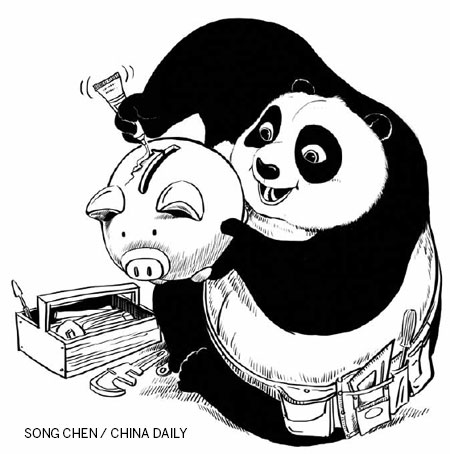Cons of deregulating finance

It is speculated that China is set to accelerate the deregulation of its financial system. For years, China has restricted the ability of its residents and foreign investors to pull and push their money in and out of the country.
While that may be illiberal, there was a sound reason for this restriction: Every emerging market that has scrapped these regulations has had a major financial crisis and subsequent trouble with growth.
The world can't afford that to happen in China. China is too big to fail.
This issue came to the fore last year when the People's Bank of China announced that it might "liberalize" its financial system in five to 10 years. The move was in stark contrast to a National Development and Reform Commission-World Bank report that put such a plan much further into the future.
That study cited the overwhelming evidence that shows, first, that dismantling cross-border financial regulations is not associated with growth and, second, that it tends to cause banking crises in economies with fledgling financial systems.
But now, Guan Tao, a State Administration of Foreign Exchange director-general has announced that "capital account convertibility" - as wonks call financial globalization - should happen in just a few years' time.
Indeed, China has already started raising the ceiling on the amount of foreign speculation in China.
Why rush this issue? Guan says this is about making the yuan a global currency. No doubt, in the long run it sure would be good to have more than US dollars on offer in the world economy. The US dollar is increasingly becoming a risky bet. Moreover, trading in the yuan would reduce exchange-rate risk for one of the world's largest trading countries (and all its trading partners). It would also reduce global risk by alleviating the world's over-reliance on the US dollar.
But China should not put the cart before the horse. To get where it wants to be and deserves to be, China will need to carefully reform its interest rate, exchange rate and financial regulatory regimes first.
Managing these reforms successfully will be close to impossible to achieve with a deregulated capital account. Financial stability is essential for China to move on with necessary reforms and maintain growth - as well as to maintain political stability.
The PBOC has kept interest rates low to provide cheaper loans for industry. This has been very beneficial, playing a key role in China's industrial policy that spawned the world's manufacturing export powerhouse. However, at this point China's investment rates are too high and China needs to consume more. Low rates moved households to over-invest in real estate, and have caused a real estate bubble in the country.
If China deregulated cross-border financial regulations before reforming its interest rate policy, there could be an enormous capital flight out of China. Low interest rates in China, juxtaposed with higher rates available abroad, would provide an attractive rate of return for many wealthy Chinese. While China has taken small steps in interest rate reform, it still has a long way to go.

























